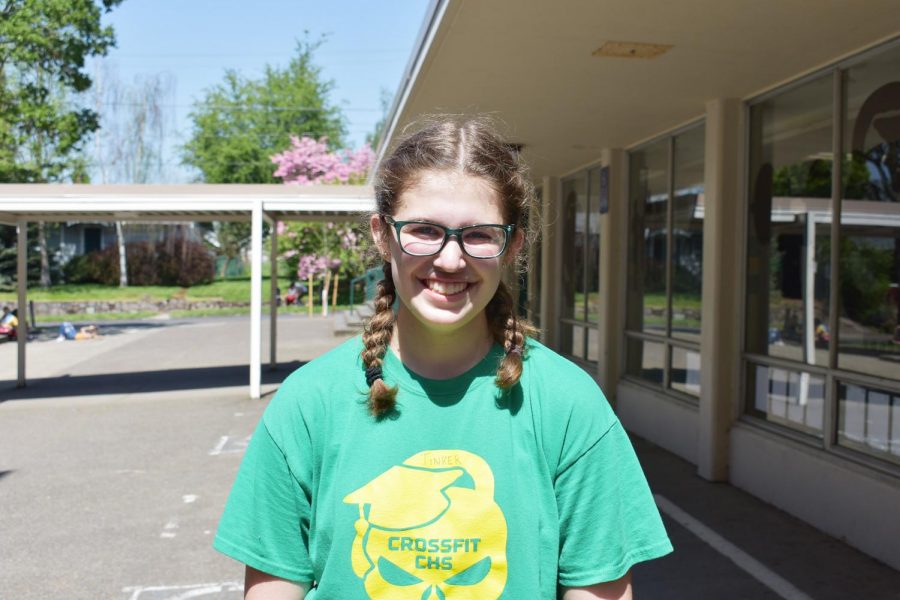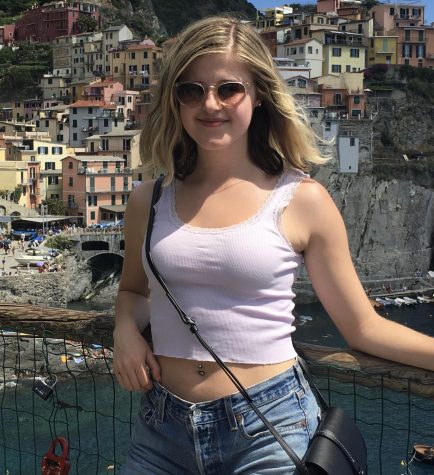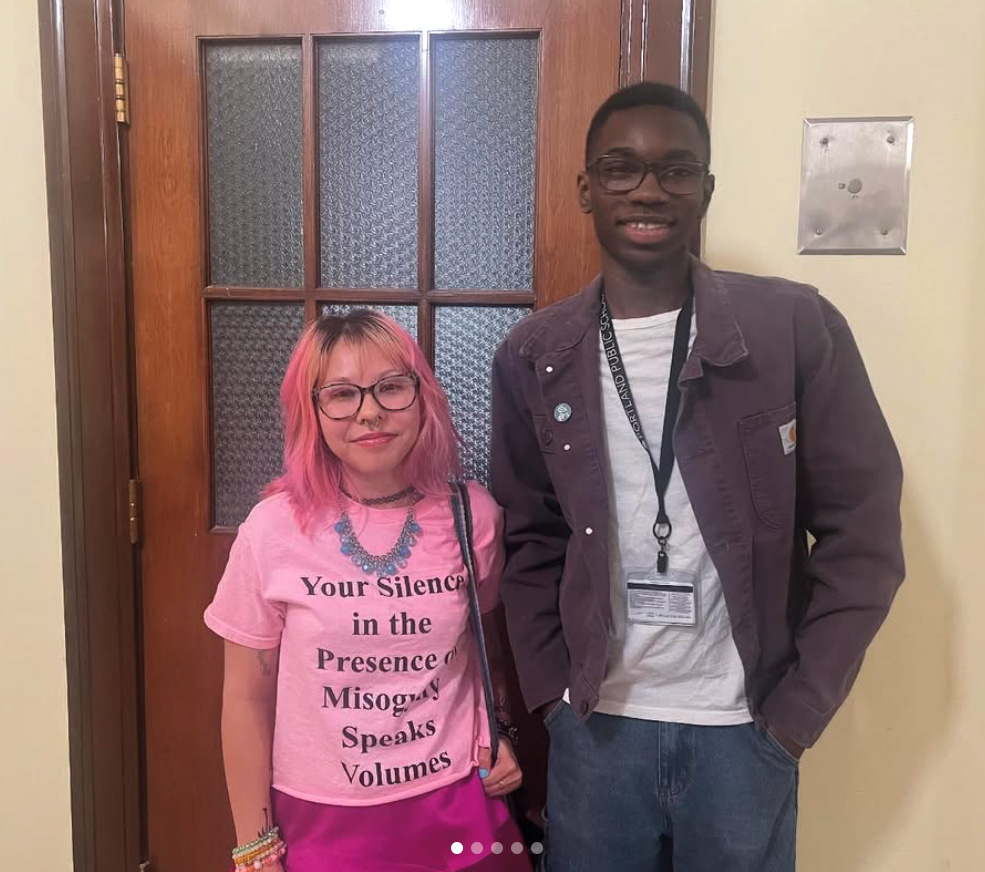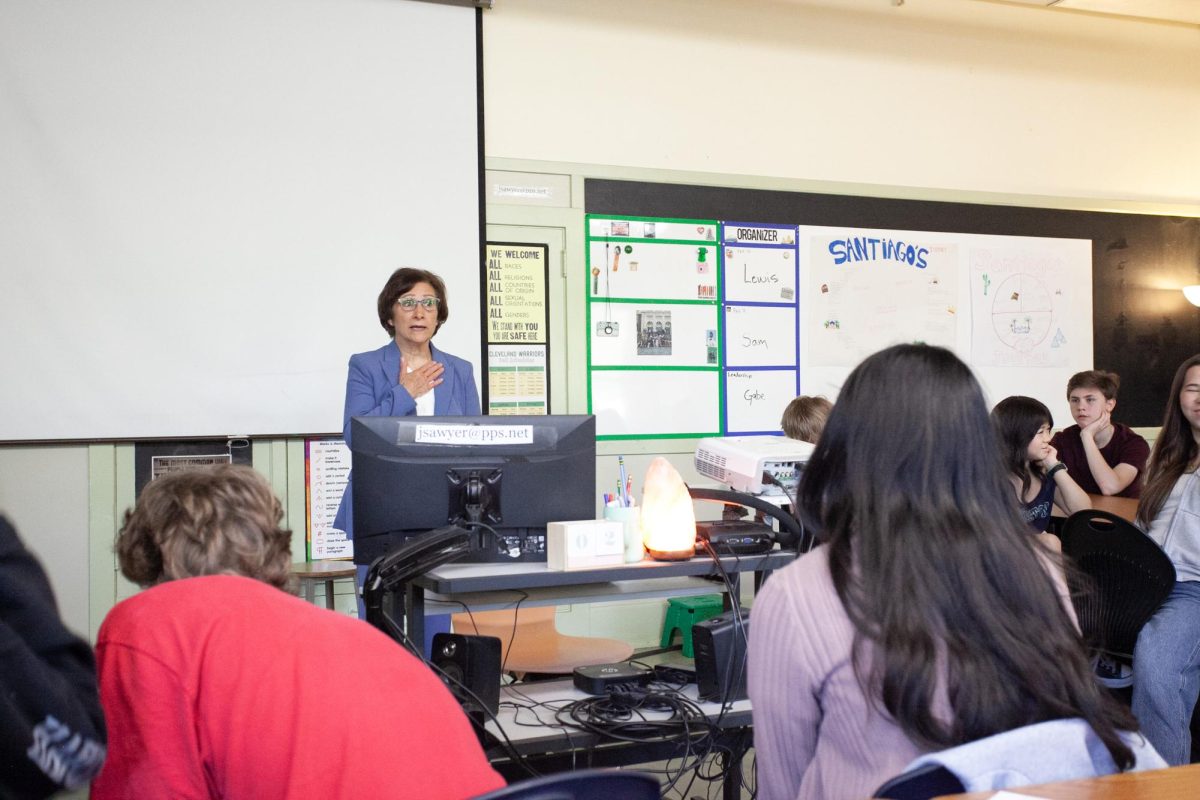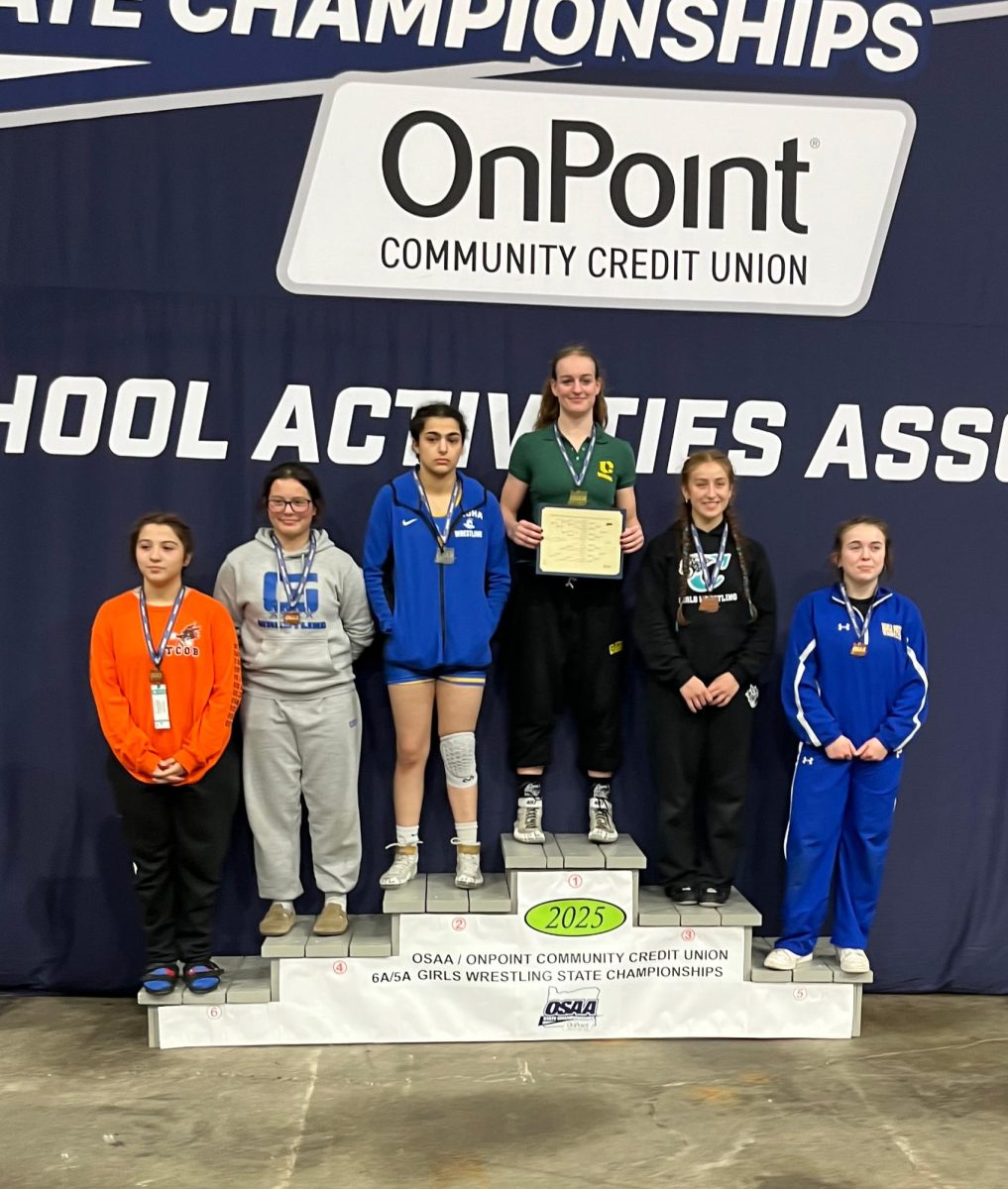Cleveland Student Lena Tinker Wins CJ McCollum’s Press Pass Program
Clarion photo Mirabella Miller
Freshman Lena Tinker won the C.J. McCollum Press Pass program with her narrative story about attending a Blazers game. She won some Blazers’ swag, was interviewed on McCollum’s radio show live.
May 8, 2018
“I wasn’t even nervous, I was like ‘Oh yeah this will be fun, I definitely won’t win,” said freshman Lena Tinker of arriving at the radio show in mid-March where Portland Trail Blazers star guard CJ McCollum was set to announce the winning entry in his Press Pass journalism contest.
But McCollum read off her name in the first place slot, and amid applause, Tinker put on her headset and began a live radio interview with him.
“I was so surprised… We were on Jammin’ 107.5. Originally I thought it was going to be a small station and not many people were going to hear it, but my uncle was driving home and happened to turn on the radio and hear CJ McCollum interviewing me. It was kind of crazy,” said Tinker of the radio show experience.
This event was the culmination of CJ’s Press Pass, a program designed by McCollum to expose Portland high schoolers to the journalism world and provide them with the opportunity to gain experience in the field. McCollum has a degree in journalism from Lehigh University, and worked as an editor for the student newspaper there his junior and senior years.
“I have been blessed to be able to use my position as an NBA player to explore my passion in sports writing and broadcasting,” said McCollum in an interview with NBC Sports in 2016.
Tinker decided to participate because she likes the Blazers and likes journalism, and saw it as a chance to learn more about a potential career.
“It started out with us going to the Nines Hotel,” said Tinker. “And that was just like a one hour group interview with [McCollum].”
The group then got to attend a game, where they watched the Blazers defeat the Golden State Warriors. Before the game, they got a behind the scenes look at the Moda Center and witnessed professional journalists prepare for interviews and game coverage.
“We got to interview a panel of professional journalists before the game,” said Tinker. “There was only one woman, and apparently is was the first time they had a woman represented. It was cool to see her up there.”
After the game, the Press Pass students were in a group interview with McCollum, as well as Shabazz Napier and Jim Moran, one of the team’s assistant coaches.
Tinker had researched McCollum’s background and paid close attention at every Press Pass event to allow her to come up with a question that would yield a valuable quote for her story.
“But when I got in the interview, I was just so nervous,” explained Tinker. “Toward the end, I finally raised my hand, and [McCollum] had been calling on new people all night, so I knew if I raised my hand he would see me. But I didn’t get called on.”
Tinker had heard that Steve Kerr, the head coach of the Golden State Warriors, had just allowed players to run one practice and one game, and she wanted to ask McCollum what he would do in that situation.
“I wanted to know what he would keep the same if he was the coach, and what he would change. I thought it would be kind of a different angle than just talking about the game,” she said.
Tinker left the interview without a quote, but she learned a valuable lesson about speaking up, which she wrote about in her piece for the contest.
According to the program’s website, students may submit their entry in any form they want, whether that be story, video, or podcast. The only requirement is that entries must encapsulate the full experience of the program. Tinker chose to write a story, which she revised, edited, and finally submitted.
The radio show with a surprise win was the perfect way to cap off an experience that Tinker is immensely grateful for. Tinker won an autographed jersey and a follow from McCollum on Instagram.
“[McCollum] is still pretty early in his career, so to be doing something like this is very cool. It was just such a good experience,” she said.



